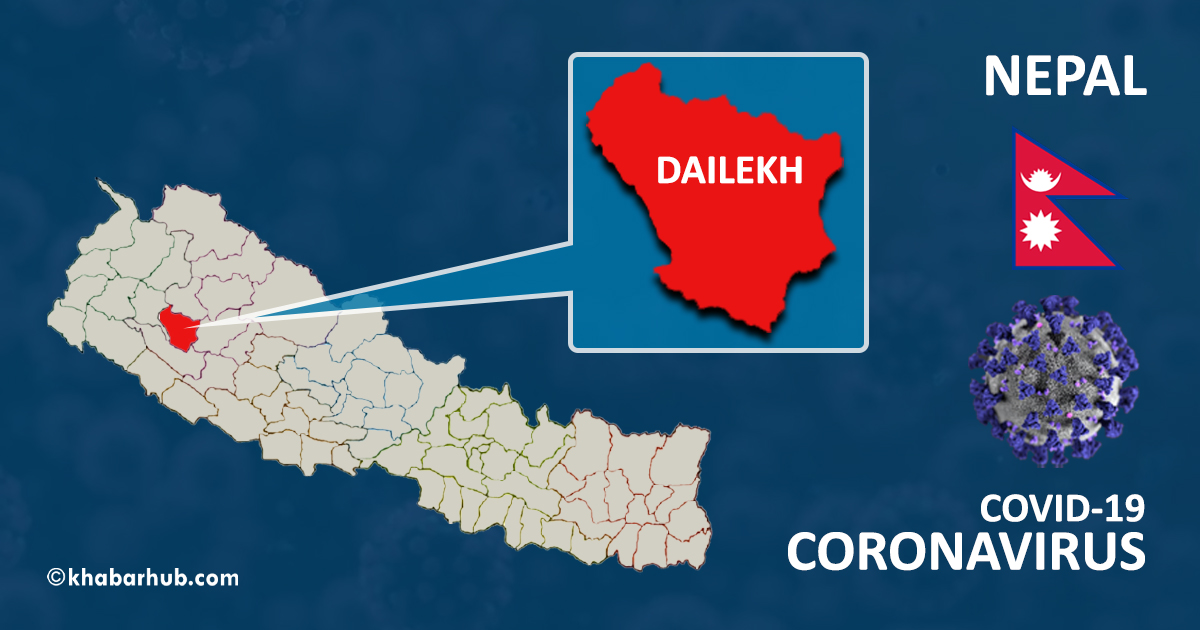DAILEKH: Challenges have grown managing the quarantine centres and people kept at these facilities with the increasing rate of coronavirus cases in the district.
The rate of contracting COVID-19 is found increasing with the sheer number of people coming home from India and the shortage of quarantine facilities to accommodate these people.
People are worried that with this the existing quarantines might turn out to be the breeding places of the coronavirus pandemic.
The number of COVID-19 cases in the Dailekh district has reached to 48 as of Sunday. One person has died in quarantine.
Most of the school buildings in all the 11 local levels of the district have been filled with quarantined people. The district has four municipalities and seven rural municipalities.
A shortage of quarantine centers has been felt after more than 7,000 India-returnees entered the district over the last week alone. Moreover, the existing quarantine facilities set up by the local levels are not spacious enough and not up to the mark.
These India-returnee people coming to the district in crammed buses were not found adopting safety measures during their travel. This has increased fears of COVID-19 transmission within the quarantine itself.
All the 47 people contracting COVID-19 in the district are India-returnees put into quarantines in various places of the district.
Human Rights Organisation of Nepal (HURON) Dailekh president Dirgha Raj Adhikari said given this situation all the bodies concerned have been urged to manage the quarantines well and to create an environment of health safety in the quarantines.
Bringing people in crammed buses without adopting health safety protocols, the quarantines becoming overcrowded with people, the quarantined people themselves not following the health safety measures and not maintaining social distancing are some factors that have increased the risk of COVID-19 outbreak within the quarantine itself.
Moreover, the Karnali State government sending these people to Dailekh without conducting their health check-up in Surkhet and the local governments also not maintaining an updated data of how many people entered the local levels from abroad and their failure to manage quarantines accordingly are other factors increasing the risk.
Federation of Nepali Journalists (FNJ) Dailekh district president Chakra KC alleged that the risk of spread of COVID-19 has increased in the villages as the State Government, instead of sending the India-returnees to the local levels one after the other, should have kept them in holdings centres and carried out their thorough health screening.
He said because of this mistake coronavirus has now travelled to the villages and the districts of the State, heightening the risk.
Meanwhile, questions have been raised on the efficiency of the local levels in the district in handling the COVID-19 pandemic after the Bhairabi rural municipality shifted one of the infected person to a cowshed from quarantine.
Four people kept in quarantine at the local Deuti Basic School had tested positive to coronavirus on Saturday, and they were shifted to a cowshed for isolation. They were found coronavirus-positive in the rapid diagnostic test (RDT).
Asked why these people were moved to the cowshed from the quarantine, the rural municipality Chair, Prem Bahadur Budha, said they did so in order to isolate these people to prevent COVID-19 transmission in the quarantine.
He explained that they had to be shifted to the cowshed as the rural municipality has no isolation ward.









Comment